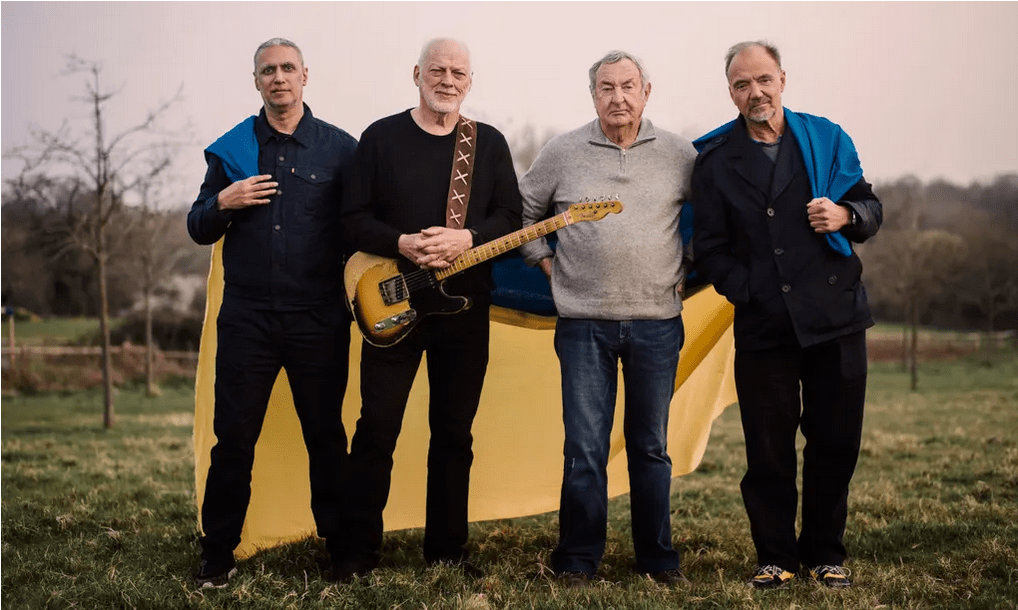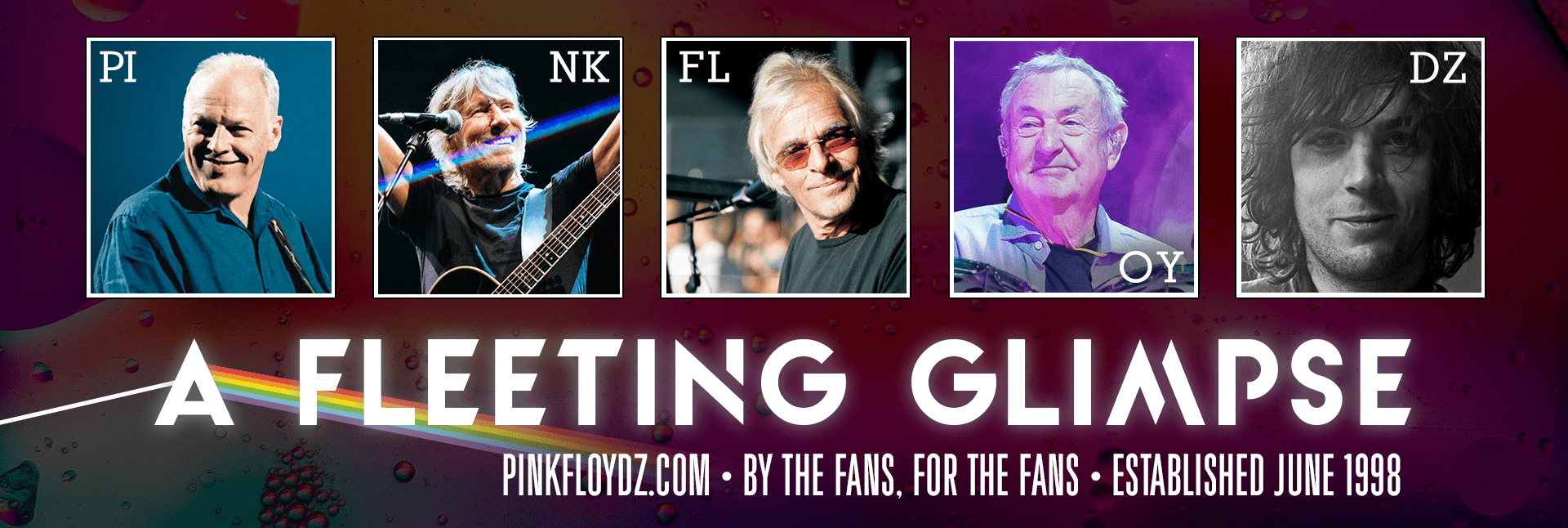‘This is a crazy, unjust attack’: Pink Floyd re-form to support Ukraine

David Gilmour and Nick Mason, flanked by Nitin Sawhney and Guy Pratt, who have contributed to the new Pink Floyd recording. Photograph: Sarah Lee/The Guardian
A couple of weeks ago, Pink Floyd’s guitarist and singer David Gilmour was asked if he’d seen the Instagram feed of Andriy Khlyvnyuk, frontman of Ukrainian rock band BoomBox. Gilmour had performed live with BoomBox in 2015, at a London benefit gig for the Belarus Free Theatre – they played a brief, endearingly raw set of Pink Floyd songs and Gilmour solo tracks – but events had moved on dramatically since then: at the end of Feburary, Khlyvnyuk had abandoned BoomBox’s US tour in order to fight against the Russian invasion.
On his Instagram, Gilmour found a video of the singer in military fatigues, a rifle slung over his shoulder, standing outside Kyiv’s St Sofia Cathedral, belting out an unaccompanied version of Oh, the Red Viburnum in the Meadow, a 1914 protest song written in honour of the Sich Riflemen who fought both in the first world war and the Ukrainian war of independence. “I thought: that is pretty magical and maybe I can do something with this,” says Gilmour. “I’ve got a big platform that [Pink Floyd] have worked on for all these years. It’s a really difficult and frustrating thing to see this extraordinarily crazy, unjust attack by a major power on an independent, peaceful, democratic nation. The frustration of seeing that and thinking ‘what the fuck can I do?’ is sort of unbearable.”
The result is Hey Hey, Rise Up!, a new single by Pink Floyd that samples Khlyvnyuk’s performance, to be released at midnight on Friday with proceeds going to Ukrainian humanitarian relief.
Most observers assumed Pink Floyd were long defunct. They last released original new music 28 years ago, although in 2014 Gilmour and drummer Nick Mason reconvened to turn outtakes from their 1994 album The Division Bell into the largely instrumental The Endless River, as a tribute to the band’s late keyboard player Rick Wright. At the time, Gilmour was insistent that was the finale for a band that began in 1965 and sold more than 250m albums. Pink Floyd couldn’t tour without Wright, who died of cancer in 2008, and there was to be no more music: “It’s a shame,” he told the BBC, “but this is the end.”
